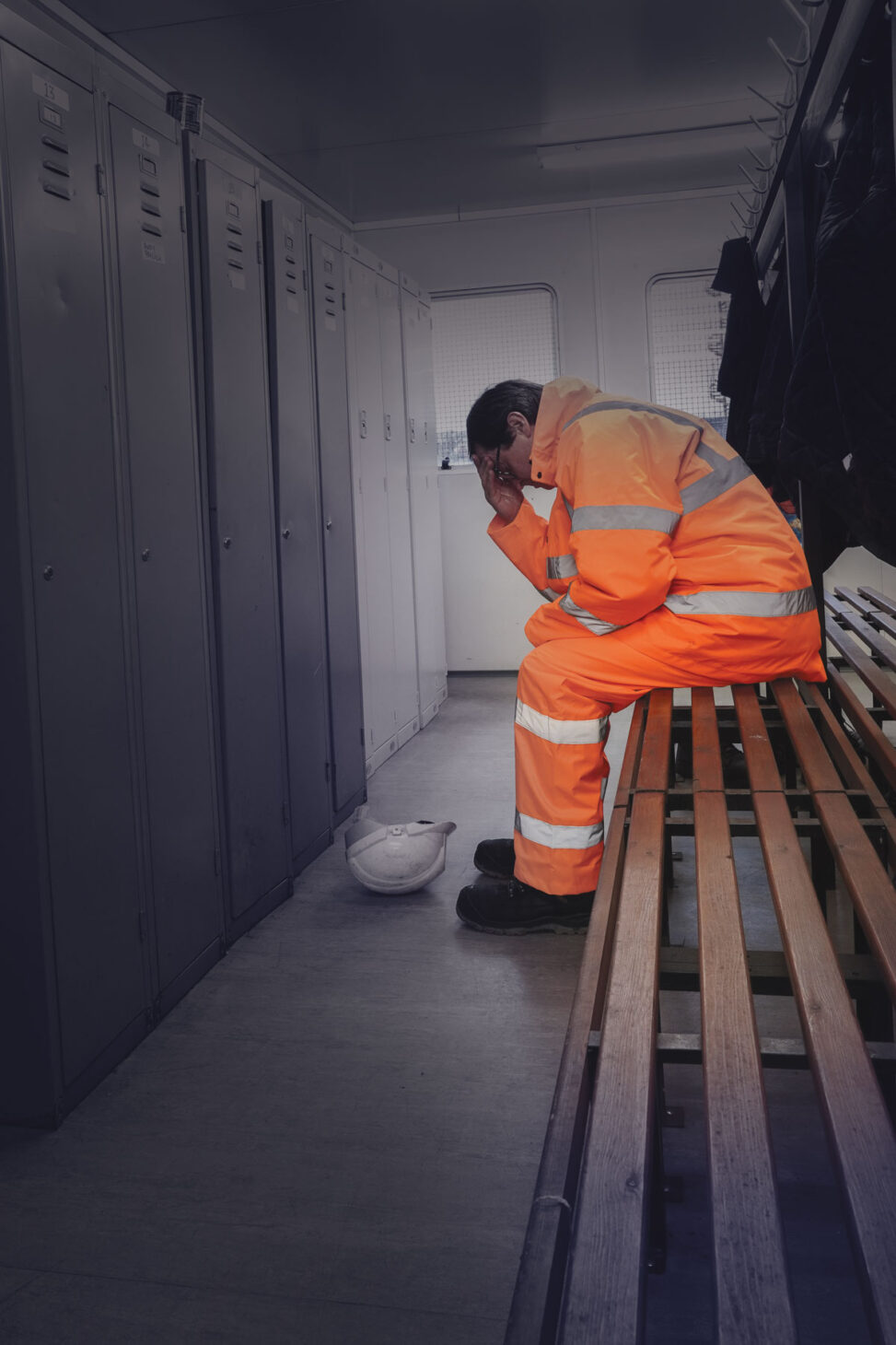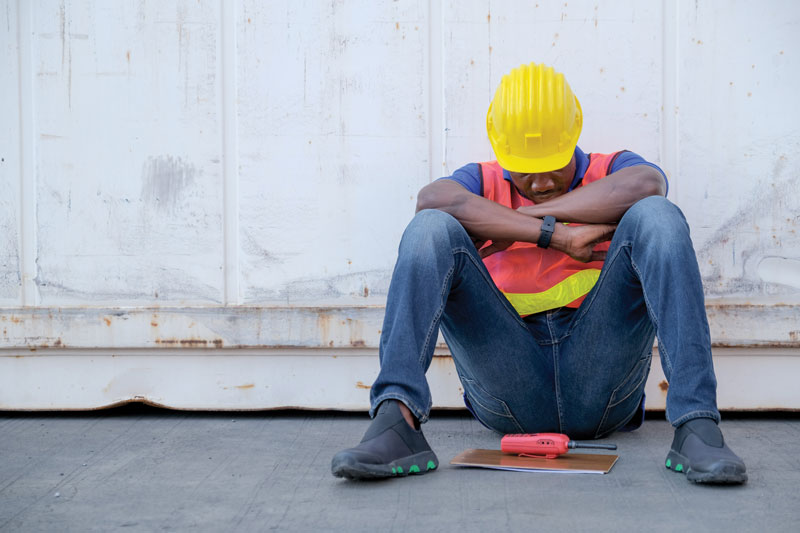
The nature of remote and northern jobsites means many workers are cut off from their support network (Photo: teamjackson/123RF)
The construction industry’s response to mental health has widely been to suck it up. However, that mindset has started to change, from workers openly seeking psychological support to companies enacting mental health training for managers and supervisors.
“I hope this is a good sign that the construction industry will start to talk about it more and decrease that stigma compared to what it historically has been,” said Ashley Spetch, PhD, chief mental health officer for WorkSafeBC. “The culture of the construction sector can be particularly difficult for people who are already struggling with their mental health.”
Spetch’s role at WorkSafeBC, an organization committed to workplace safety, is new and the first position of its kind in any workers’ compensation board in the country. With a post-doctorate in consulting psychology, Spetch has focused her research and practice on the interaction between work and mental health.
“My role primarily focuses on claims and devising an innovative strategy for injured workers, especially around psychological injuries,” she said. “Even a physical injury can have a related mental health component.”
According to the Independent Contractors and Businesses Association, an advocacy group for construction workers in B.C., construction workers in Canada face the risk of suicide at a rate of seven times higher than the national average. This statistic is especially prevalent to northern and remote workers who lack access to specific support networks that construction workers in more urban areas might have access to because of their location.

Spetch says the pandemic has made that isolation even more significant, limiting where workers can come and go, and who they can socialize with during downtime.
“When we talk about working in remote and northern locations, there are two types of people,” said Spetch. “Those who live there and those who don’t live there. For those who are there temporarily for work – they’ve left their families, homes, communities and support networks to travel and work, resulting in varying levels of isolation depending on the worker and their unique circumstances.”
Spetch says the pandemic has made that isolation even more significant, limiting where workers can come and go, and who they can socialize with during downtime.
“Isolation compounded with the already inherently stressful nature of the job can be overwhelming,” said Spetch. “Between financial constraints, job insecurity, long hours and physically exhausting work – construction can be often unpredictable, and therefore stressful.” These stressors can add to workplace fatigue and depression. For construction workers – especially in remote and northern locations – having the skills to cope are paramount to survival. In other words, “Being able to normalize your emotions is critical,” said Spetch.
“Feeling sad and lonely, and longing for your day-to-day life with your family is normal – most people would feel that way when they are isolated. So, be curious about how you’re feeling, and ask yourself, ‘What might have triggered that emotion in me? Is it because I am missing my wife? Is it because I’m not getting enough sleep? Is it because I’m not exercising?’
“Getting to know yourself will help you understand what triggers you because everyone is so different in terms of what contributes to them having a difficult day.”

Another way for workers to manage their mental health is to stay connected to a support network. “Your partner, your kids, your friend, your mom, your church, your sister-in-law – whoever your community or support network is, find a way to stay in touch with them,” said Spetch.
Access to resources in northern and remote locations can also be a significant barrier for workers to receive mental health support. Internet access remains a huge issue at some remote construction sites. Spetch says that even though the internet is a hub for mental health support literature, it’s not a realistic option for everyone.
She suggests listening to podcasts, downloading apps (in advance) and reading books as other ways for workers to access mental health support without needing reliable internet or WiFi access. Still, it’s not only on the onus of the workers to address mental health concerns in their industry, says Spetch.
“Psychological health and safety is everyone’s responsibility,” she said. “It’s the responsibility of the worker, it’s the responsibility of the employer, it’s the responsibility of the union – and unless everyone buys into that, then it’s difficult to create a culture of caring, compassion and support around psychological health and safety.”
Spetch acknowledges that the sometimes-temporary nature of employment in the construction industry can make it feel challenging to establish meaningful relationships with workers. Still, for employers to cultivate the culture she describes, the easiest and most obvious solution is for employers to demonstrate care consistently. While at the same time, drive forward a supportive work environment that includes fostering open communication, sharing positive information and staying connected with workers (to name a few).
For construction workers – especially in remote and northern locations – having the skills to cope are paramount to survival.
“Genuinely care about people and their needs and how they’re doing,” she said. “Have managers go through the appropriate training to better understand mental health and recognize changes in workers’ behaviour.”
Acting short and irritable, being late and not performing aren’t necessarily signs the worker has performance issues. “It’s more like they’re struggling with their mental health,” she said.
Spetch says in addition to training leaders, managers and supervisors on mental health, employers should be very clear about what is acceptable workplace behaviour and have zero tolerance for bullying and harassment and discrimination of any kind.
“State clearly and mean it, that this is a place where we respect and care about everyone,” she said.
While the construction industry continues to develop its handling of mental health in the workplace, the “suck it up” and “get over it” mindset remains pervasive, says Spetch.
“Mental health is real – you can’t just suck it up and get over it when you’re struggling,” she said. “It should be treated like every other health condition and approached with compassion. Workplaces need to support the whole person, and I hope we see this change in the industry.”